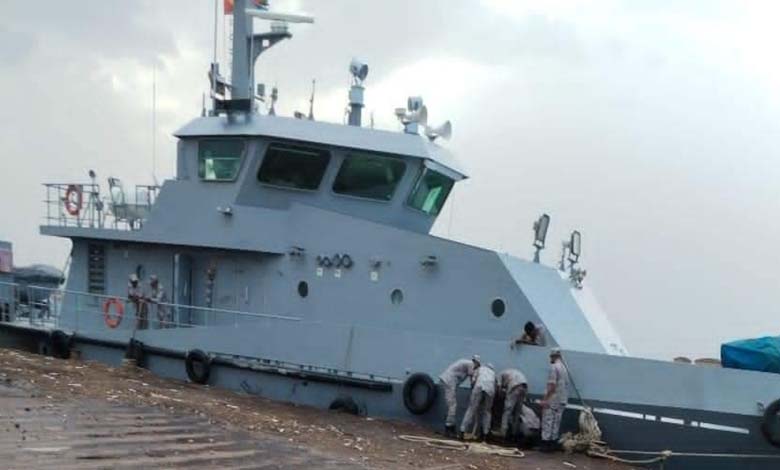Eritrean Naval Vessels Arrive in Sudan to Support the Army
Eritrean military support for Burhan comes days after the expulsion of the Sudanese ambassador and coincides with improved Ethiopian-Sudanese relations.

On Friday evening, the Sudanese army announced the arrival of Eritrean naval vessels at its ports on the Red Sea in the eastern part of the country. This indicates the intentions of Sovereign Council leader Abdul Fattah al-Burhan to escalate military actions despite regional and international efforts to resume negotiations aimed at ending the war in Sudan.
In a brief statement, the army said: “On Friday, the Sudanese naval forces received vessels from the Eritrean navy.” The statement did not provide details about these vessels but mentioned that an Eritrean delegation had arrived in Sudan for this purpose.
It was clarified that the head of the Eritrean delegation (unnamed) stated that the visit was “in accordance with the instructions of President Isaias Afwerki, to reaffirm the Eritrean leadership’s support for the brotherly Sudanese people in these difficult times, and to strengthen the solid relations between the two brotherly countries,” according to the statement.
The arrival of these naval vessels in Port Sudan comes despite some tension in bilateral relations following Asmara’s announcement of the Sudanese ambassador Khalid Abbas as a persona non grata and giving him “72 hours” to leave the country. The Sudanese Ministry of Foreign Affairs issued a statement on Thursday, seeking clarifications from Eritrea after its decision to expel the ambassador.
The Sudanese newspaper “Al-Tayyar,” citing unnamed Eritrean sources, reported that the expulsion was due to the ambassador’s recruitment of two young men to gather information about the Sawa camp, a military training camp in the western part of the country, where twelfth-grade students in the Eritrean system spend their school year.
The expulsion decision comes as Sudanese-Ethiopian relations begin to improve following Ethiopian Prime Minister Abiy Ahmed’s visit to Port Sudan, which Asmara perceived as a negative signal, although the arrival of the naval vessels indicates a return to stability in Eritrean-Sudanese relations.
In September, Burhan visited Eritrea as part of a regional tour to discuss bilateral relations and the situation in Sudan, but this visit was part of the regional support received by the Sudanese army to counter the Rapid Support Forces‘ advances on multiple fronts.
Eritrean authorities are leveraging their intervention in Sudanese affairs to gain benefits from the ongoing war in Sudan to regain influence in the eastern part of the country, as they had in past years.
Eritrea seeks to prevent the increase in UAE influence in the Horn of Africa and is implementing a regional agenda reflecting its discontent with Abu Dhabi’s success in strengthening relations with Horn of Africa countries through financial support and investment.
The Eritrean military support for Burhan comes as the Sovereign Council has not responded to the United States’ call last week for resuming Sudanese negotiations in Geneva, suggesting that the army chief rejects all peaceful solutions and aims for a military resolution, as he has repeatedly affirmed.
Washington has called for talks also sponsored by Saudi Arabia, which will include the African Union, Egypt, the UAE, and the United Nations as observers, to end the suffering of the Sudanese. However, external and regional military interventions prevent reaching an agreement.
The head of the Rapid Support Forces, Mohamed Hamdan Daglo, known as Hamidti, welcomed the US call, indicating his desire for peace in contrast to the hesitant and tense positions of Sudanese army leaders.
The war between the Sudanese army and the Rapid Support Forces has continued since mid-April 2023, resulting in approximately 15,000 deaths and around 10 million displaced and refugees, according to the United Nations.
A UN report published at the end of June indicated that about 25.6 million people, or more than half of Sudan’s population, are currently facing “severe food insecurity.” Both sides have been accused of war crimes for deliberately targeting civilians.
Since the start of the war, the army and Rapid Support Forces have been accused of looting humanitarian aid and disrupting its distribution, as well as destroying an already fragile health system.












